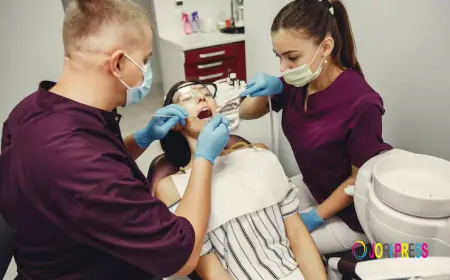Asthma Treatment Market Winning Strategies for Therapy Adoption, Patient Engagement, and Sustainable Growth
The Asthma Treatment Market requires effective winning strategies to enhance therapy adoption, improve patient engagement, and achieve sustainable growth. Pharmaceutical companies, healthcare providers, and investors must leverage innovative approaches, patient-centric models, and market intelligence to maintain competitive advantage in the evolving asthma treatment landscape.
A key winning strategy is therapeutic innovation. Developing advanced biologics, monoclonal antibodies, combination inhalers, and personalized therapies improves patient outcomes and drives market adoption. Continuous investment in research and development ensures that companies stay at the forefront of asthma care, meeting the evolving needs of patients globally.
Digital health integration is another critical strategy. Smart inhalers, mobile applications, remote monitoring devices, and telemedicine platforms allow real-time patient tracking, adherence monitoring, and personalized treatment plans. Incorporating AI and predictive analytics into care management enhances patient outcomes and strengthens market positioning.
Patient-centric approaches enhance therapy adoption and engagement. Tailoring treatments based on individual patient needs, educating patients on disease management, and implementing digital engagement tools improves adherence, satisfaction, and loyalty. Companies prioritizing patient experience gain a competitive edge while driving consistent market growth.
Expanding into emerging markets is a vital strategy. Regions like Asia-Pacific, Latin America, and the Middle East are experiencing increased asthma prevalence due to urbanization, pollution, and lifestyle changes. Strategic investments in local healthcare infrastructure, awareness programs, and regional partnerships enable companies to capture untapped market opportunities.
Regulatory alignment and proactive engagement strengthen market presence. Navigating complex regulatory landscapes, obtaining timely approvals, and understanding reimbursement policies allow companies to minimize delays, improve market access, and enhance therapy adoption. Engaging with authorities early in the development process ensures smoother market entry.
Collaborations and partnerships are effective strategies for growth. Partnering with research institutions, technology providers, and healthcare organizations accelerates product development, enhances clinical trials, and improves distribution networks. Strategic alliances also help companies leverage expertise, optimize resources, and expand their market reach.
Data-driven decision-making is essential. Collecting real-world evidence, analyzing patient outcomes, and monitoring treatment efficacy enable companies to optimize therapies, refine marketing strategies, and tailor patient engagement programs. Data-driven insights allow better strategic planning and sustainable growth.
Sustainability and environmental initiatives contribute to brand reputation and market competitiveness. Producing eco-friendly inhalers, implementing green manufacturing practices, and reducing carbon footprints align with global expectations, attract stakeholders, and improve market positioning. Companies integrating sustainability into their strategies gain a long-term advantage.
Flexible pricing and patient support programs are crucial strategies to improve therapy adoption. Subsidized programs, insurance collaborations, and tiered pricing models enhance affordability, particularly in emerging markets. By addressing economic barriers, companies ensure broader access and strengthen market penetration.
Technological adoption is another winning strategy. Integrating digital health tools, wearable devices, and AI-based platforms improves adherence, patient monitoring, and therapy outcomes. Training programs, easy-to-use interfaces, and accessibility initiatives ensure technology adoption across diverse populations.
Marketing and awareness campaigns enhance visibility and engagement. Educating patients, healthcare providers, and caregivers about therapy options, proper usage, and benefits ensures informed decision-making and increases treatment adherence. Strategic campaigns can differentiate products and improve market share.
In conclusion, winning strategies in the asthma treatment market include therapeutic innovation, digital health integration, patient-centric approaches, emerging market expansion, regulatory engagement, collaborations, data-driven decision-making, sustainability, flexible pricing, technology adoption, and strategic marketing. Implementing these strategies enhances therapy adoption, improves patient outcomes, and ensures sustainable growth in the evolving asthma treatment landscape.
What's Your Reaction?
 Like
0
Like
0
 Dislike
0
Dislike
0
 Love
0
Love
0
 Funny
0
Funny
0
 Angry
0
Angry
0
 Sad
0
Sad
0
 Wow
0
Wow
0

















































